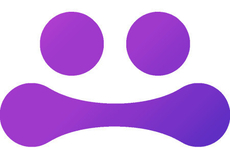
Google and USCF Made a Machine Learning Tool for Prescriptions
Daniel Johnson — April 6, 2020 — Tech
References: ai.googleblog & techcrunch
Google and the University of California San Francisco recently worked in conjunction to create a novel machine learning tool that can protect against prescription errors that could harm medical patients. The machine learning tool is able to model typical prescription patterns using patient records as data points. The two organizations also stated that the technology works in a similar capacity to fraud detection software that is also powered by machine learning.
Google indicated the tool was accurate three-quarters of the time, and it was 93% accurate when predicting one medication choice for a patient. Overall the tool could protect against instances of prescription error that could harm patients, and the organizations will continue optimizing the system.
Image Credit: Shutterstock
Google indicated the tool was accurate three-quarters of the time, and it was 93% accurate when predicting one medication choice for a patient. Overall the tool could protect against instances of prescription error that could harm patients, and the organizations will continue optimizing the system.
Image Credit: Shutterstock
Trend Themes
1. Machine Learning in Healthcare - The development of machine learning tools in the healthcare industry presents opportunities for preventing prescription errors and enhancing patient safety.
2. Predictive Modeling for Prescription Patterns - The use of predictive modeling and patient data analysis can help identify typical prescription patterns, leading to better decision-making and reduced errors in prescriptions.
3. Fraud Detection Technology for Healthcare - Applying fraud detection software and machine learning techniques to healthcare can improve prescription accuracy and protect against instances of prescription errors.
Industry Implications
1. Healthcare - The healthcare industry can leverage machine learning tools to enhance patient safety and reduce prescription errors.
2. Pharmaceuticals - Predictive modeling of prescription patterns can help pharmaceutical companies optimize medication choices and minimize errors in prescriptions.
3. Technology - The application of fraud detection technology and machine learning in healthcare opens up new opportunities for tech companies to improve prescription accuracy and patient safety.
1.4
Score
Popularity
Activity
Freshness























